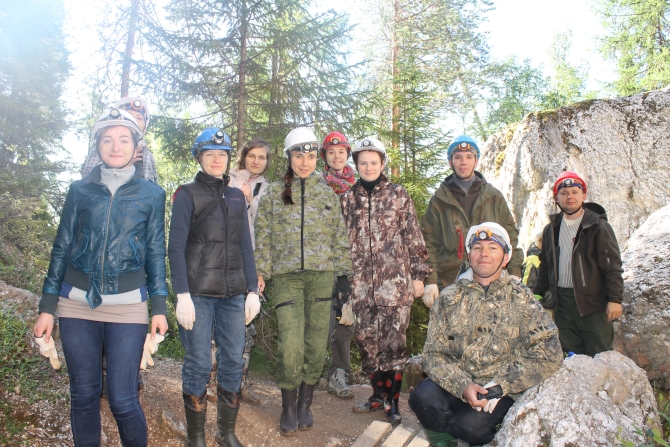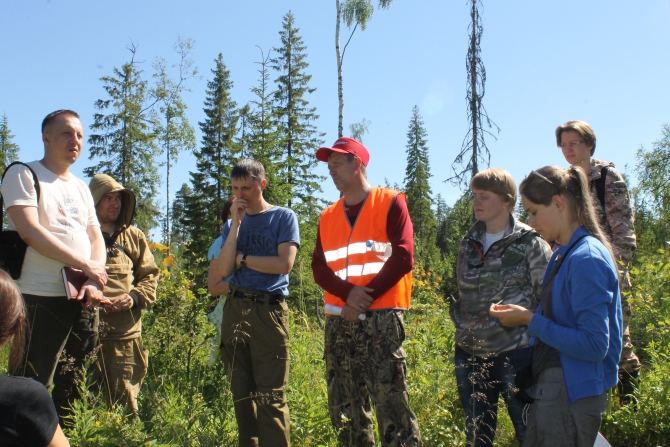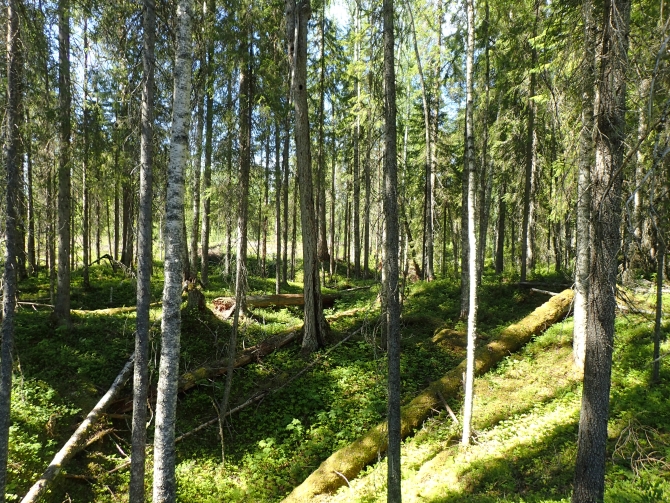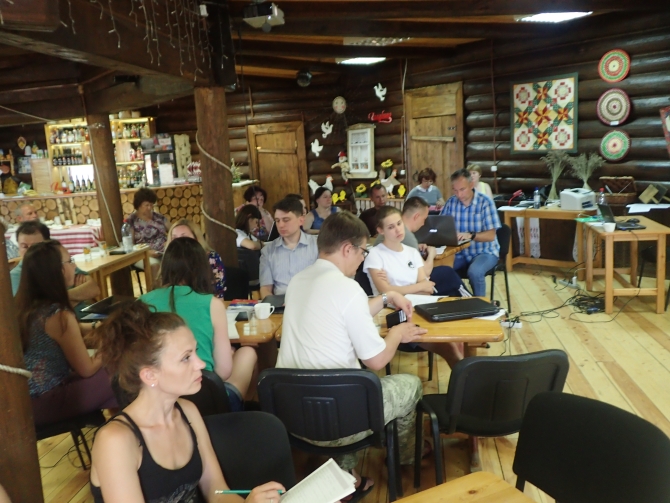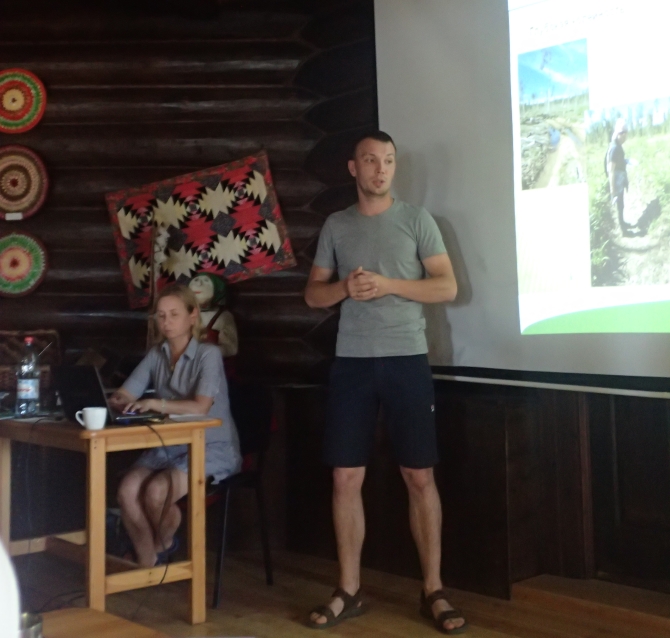Final Advanced FSC Certification Course
The final advanced FSC certification course – the last of the series of FSC consultant trainings arranged under the joint project of the World Wildlife Fund (WWF Russia) and the FSC Russian National Office (FSC Russia) – was held in Arkhangelsk region in June-July. The classes covered the topics of biodiversity preservation, forestry management in unique karst landscapes, the EIA procedure, cooperation with stakeholders, and others. That time, the participants were not divided into two groups, but were trained together as a team.
Initially, the course was intended to improve the competence of consultants and thus to enhance the FSC certification quality. How well did the facilitators manage to reach the goal? Nikolay Shuktomov from the Silver Taiga Foundation’s staff said after the course, “It was undoubtedly a very useful course! I think, the target of the final unit was achieved owing to so many highly skilled trainers being involved and lots of attendees with various levels of qualification and employed at different industries taking part in it. The training style included two types – from trainers to students and in peer groups. I was nicely surprised that all consultants were gathered together that time. We all got to know each other, exchanged our contact details, and shared the problems we face at work. It was unexpected that sessions with a psychologist were also part of the training course. We frequently ignore the issues which are not directly related to the work activity, although, as we managed to understand through psychology sessions, business communication is extremely important in consulting”.
As Nikolay Shilov from Silver Taiga, another FSC training participant, shared, while attending the courses in Komi, Kirov and Arkhangelsk regions the participants learnt about the operation of various FSC certified companies and specific challenges of the certification process. Nikolay believes that the core issues are related to development and introduction of the biodiversity preservation system, as well as maintaining company profitability in line with no confrontation with stakeholders.
“Environmental problems are difficult to be handled, as it is hard to consider the interests of all parties, besides landscape features and rugged relief make sustainable forestry management even more challenging. In addition, you can somehow find an agreement with the local population, while getting to an agreement with the nature is simply impossible, as it imposes its own forestry management rules which are to be strictly followed by loggers”, Nikolay Shuktomov continues.
As for the limitations of the course, the foundation’s members noted that the consistency of the training material was not always observed; they lacked practical examples, practical tasks and workshops from experts. Therefore, they failed to cover all the issues from the application point of view, as a result they failed to understand some of such issues. Unfortunately, the course excluded such an important topic as usage of uncontrolled wood by FSC certificate holders… It is also necessary to promote supply chain certification – it is even a more challenging task, as can be seen from the shortage of experts in this field…. So it is clear that it is necessary to proceed with such training courses, and they need to be held regularly to ensure update of knowledge by certification specialists. The participants expressly supported the idea of having the course conducted in Siberia and the Far East. It is worth to mention that FSC certification standards are constantly improved and supplemented, which makes it a bit difficult both for FSC certified enterprises and for consultants and auditors. As the foundation’s staff noted, it is a team of consultants who would be ready to do the work for a company thoroughly and diligently with the aim to get that company prepared for the audit in a responsible way, rather than earn cash, that is important to be developed.

